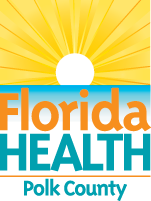Health Officials Urge Mosquito-borne Illnesses Awareness
August 18, 2022
Contact:
Scott Sjoblom
scott.sjoblom@flhealth.gov
863-512-2550
Bartow, Fla.— The Florida Department of Health in Polk County (DOH-Polk) officials emphasize the importance of Florida’s residents and visitors protecting themselves against mosquito-borne diseases, such as West Nile virus disease. The public should remain diligent in preventative measures like “Drain and Cover.”
“Summer storms create the potential for more standing water where mosquitos lay their eggs,” said Dr. Joy Jackson, Director of the Florida Department of Health in Polk County. “I encourage all residents to practice “Drain and Cover” to help reduce the likelihood of being bitten by mosquitoes.”
DRAIN standing water to stop mosquitoes from multiplying.
Scott Sjoblom
scott.sjoblom@flhealth.gov
863-512-2550
Bartow, Fla.— The Florida Department of Health in Polk County (DOH-Polk) officials emphasize the importance of Florida’s residents and visitors protecting themselves against mosquito-borne diseases, such as West Nile virus disease. The public should remain diligent in preventative measures like “Drain and Cover.”
“Summer storms create the potential for more standing water where mosquitos lay their eggs,” said Dr. Joy Jackson, Director of the Florida Department of Health in Polk County. “I encourage all residents to practice “Drain and Cover” to help reduce the likelihood of being bitten by mosquitoes.”
DRAIN standing water to stop mosquitoes from multiplying.
- Drain water from garbage cans, house gutters, buckets, pool covers, coolers, toys, flower pots or any other containers where sprinkler or rain water has collected.
- Discard old tires, drums, bottles, cans, pots and pans, broken appliances and other items that aren't being used.
- Empty and clean birdbaths and pet's water bowls at least once or twice a week.
- Protect boats and vehicles from rain with tarps that don’t accumulate water.
- Maintain swimming pools in good condition and appropriately chlorinated. Empty plastic swimming pools when not in use.
- Clothing - Wear shoes, socks, and long pants and long-sleeves. This type of protection may be necessary for people who must work in areas where mosquitoes are present.
- Repellent - Apply mosquito repellent to bare skin and clothing.
- Always use repellents according to the label. Repellents with DEET, picaridin, oil of lemon eucalyptus, para-menthane-diol, 2-undecanone and IR3535 are effective.
- Use mosquito netting to protect children younger than 2 months old.
- Always read label directions carefully for the approved usage before you apply a repellent. Some repellents are not suitable for children.
- Products with concentrations of up to 30 percent DEET (N, N-diethyl-m-toluamide) are generally recommended. Other U.S. Environmental Protection Agency-approved repellents contain picaridin, oil of lemon eucalyptus, para-menthane-diol, 2-undecanone or IR3535. These products are generally available at local pharmacies. Look for active ingredients to be listed on the product label.
- Apply insect repellent to exposed skin, or onto clothing, but not under clothing.
- In protecting children, read label instructions to be sure the repellent is age-appropriate. According to the Centers for Disease Control and Prevention (CDC), mosquito repellents containing oil of lemon eucalyptus or para-menthane-diol should not be used on children under the age of three years. DEET is not recommended on children younger than two months old.
- Avoid applying repellents to the hands of children. Adults should apply repellent first to their own hands and then transfer it to the child’s skin and clothing.
- If additional protection is necessary, apply a permethrin repellent directly to your clothing. Again, always follow the manufacturer’s directions.
- Repair broken screening on windows, doors, porches, and patios.
To determine which repellent is right for you, consider using the U.S. Environmental Protection
Agency’s search tool for skin-applied repellent products:
Find the Repellent that is Right for You | US EPA (link opens in a new window)
DOH continues to conduct statewide surveillance for mosquito-borne illnesses, including West
Nile Virus, Eastern Equine Encephalitis, St. Louis Encephalitis, Malaria and Dengue. For more information on mosquito-borne illnesses, visit DOH’s Web site: Mosquito-Borne and Other Insect-Borne Diseases or call your local county health department.
Florida Emergency Information Line: 1-(800)-342-3557
Public Information Emergency Support Function: (850) 921-0384
For Media Inquiries
Newsroom
Statewide Articles
JavaScript must be enabled in your browser to display articles




Connect with DOH